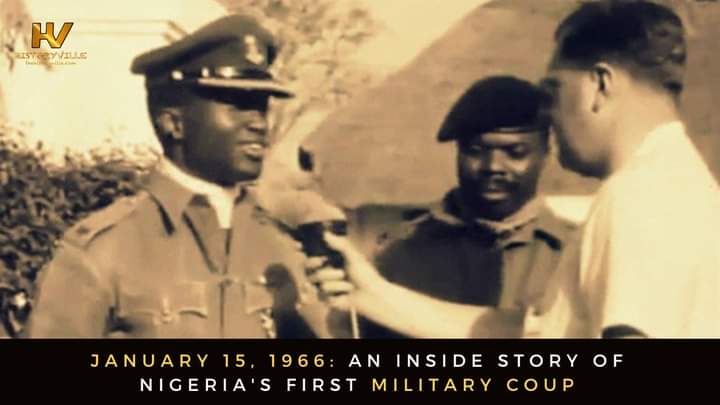Forgotten Dairies
January 15, 1966: Was It An Igbo Coup? -By Agogo Ayo
As Brigade Major, 1 Brigade, Kaduna, Keshi informed Madiebo of the coup. Madiebo then moved over to the Brigade Headquarters where Nzeogwu had taken over Ademulegun’s seat and worked on the Major.

Some argue that Major Kaduna Nzeogwu’s involvement in the January 1966 coup was part of a grand Igbo plan to “dominate” the country. This argument ignores the fact that Nzeogwu was an Igbo only in name.
Major Nzeogwu was born in Kaduna, the capital of the Northern Region, to Igbo immigrant parents from Okpanam, present-day Delta State, then in the Mid-West Region of Nigeria as of the time of the coup.
His family and military colleagues referred to him as “Kaduna” because of their attachment to the city of Nzeogwu’s birth. Kaduna Nzeogwu wore northern mufti when he wasn’t in his army uniform and frequently referred to himself as “a northerner.”
Nzeogwu spoke Hausa, the lingua franca of the Northern Region, like a local. The major’s command of the Hausa language was superior and better than his command of the Igbo language.
Even though the coup had been largely termed an Igbo coup, it was foiled by Igbo officers. Interestingly, those who foiled the coup were Igbo senior officers. Major-General Johnson Aguiyi-Ironsi, Lieutenant-Colonels Emeka Ojukwu, Conrad Chukwujimje Dibia Nwawo, Alexander Attah Madiebo, and Major Alphonso Keshi.
As Brigade Major, 1 Brigade, Kaduna, Keshi informed Madiebo of the coup. Madiebo then moved over to the Brigade Headquarters where Nzeogwu had taken over Ademulegun’s seat and worked on the Major.
Ojukwu, Commanding Officer Fifth Battalion, Kano, stood his ground strategically and all worked with Ironsi to end the coup.
#HistoryVille


















